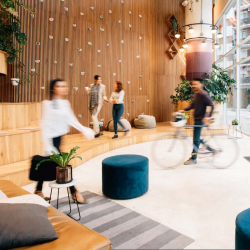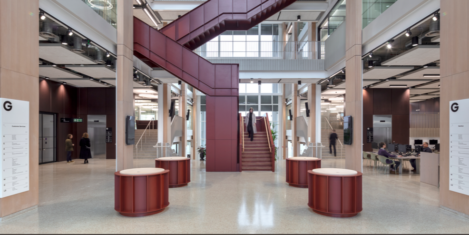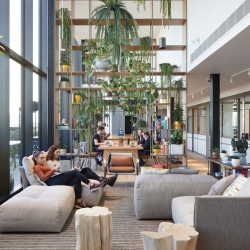To provide the best experiences, we use technologies like cookies to store and/or access device information. Consenting to these technologies will allow us to process data such as browsing behaviour or unique IDs on this site. Not consenting or withdrawing consent, may adversely affect certain features and functions.
The technical storage or access is strictly necessary for the legitimate purpose of enabling the use of a specific service explicitly requested by the subscriber or user, or for the sole purpose of carrying out the transmission of a communication over an electronic communications network.
The technical storage or access is necessary for the legitimate purpose of storing preferences that are not requested by the subscriber or user.
The technical storage or access that is used exclusively for statistical purposes.
The technical storage or access that is used exclusively for anonymous statistical purposes. Without a subpoena, voluntary compliance on the part of your Internet Service Provider, or additional records from a third party, information stored or retrieved for this purpose alone cannot usually be used to identify you.
The technical storage or access is required to create user profiles to send advertising, or to track the user on a website or across several websites for similar marketing purposes.
 A report by the British Council for Offices (BCO) recommends a new method for calculating the amount of space needed per person in the post-pandemic world of flexible working. The research claims to identify a ‘sweet spot’ of 10-12 sq. m. per person. This will account for the rise in people working from home and hot-desking when in the office, while simultaneously ensuring the workspace meets modern employers’ requirements to promote productivity and wellbeing, as well as targets to minimise carbon emissions. (more…)
A report by the British Council for Offices (BCO) recommends a new method for calculating the amount of space needed per person in the post-pandemic world of flexible working. The research claims to identify a ‘sweet spot’ of 10-12 sq. m. per person. This will account for the rise in people working from home and hot-desking when in the office, while simultaneously ensuring the workspace meets modern employers’ requirements to promote productivity and wellbeing, as well as targets to minimise carbon emissions. (more…)































